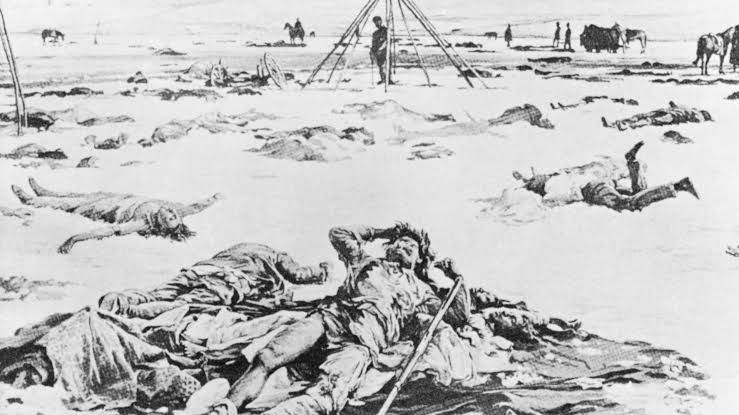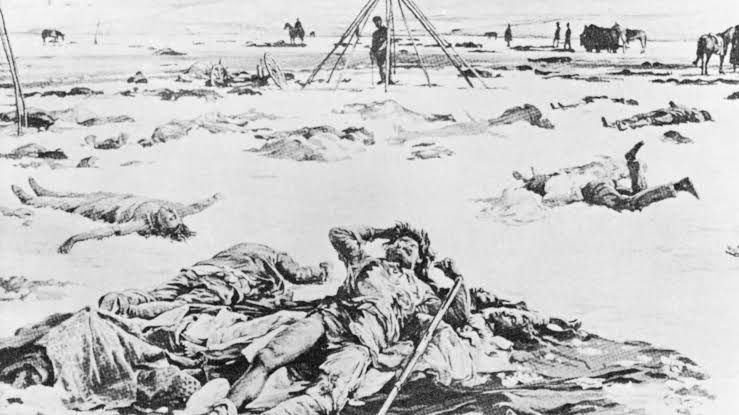Historical Trauma

Historical trauma and historical trauma response are concepts that originated in the field of psychology and psychiatry and have been used to try to understand how we deal with the long-lasting mental-emotional effects of collective and intergenerational trauma. Here’s a more detailed explanation of these terms:

1. Historical Trauma refers to the lingering effects of traumatic experiences that have been endured by a group of people or a community over generations. It is often associated with events such as colonization, genocide, slavery, forced displacement, war, massacre ( such as
Wounded Knee Massacre in 1890 CE) or other forms of systematic oppression and violence. Historical trauma recognizes that the impact of these traumatic events can be passed down through generations, thus being transgenerational affecting the physical, energetic, mental-emotional, and spirotual well-being of individuals and communities.
The concept of historical trauma suggests that the effects of trauma are not limited to those who directly experienced the traumatic event but can also be transmitted to subsequent generations through various mechanisms. These may include physical, energetic, spiritual, amd various forms of cultural practices, family dynamics, socialization processes, and the transmission of narratives and memories.
2. Historical Trauma Response: Historical trauma response refers to the physical, energetic, mental-emotional, spiritual , and behavioral reactions that individuals or communities may exhibit in response to historical trauma. These responses can manifest in various ways and may include symptoms such as loss of soul, depression, anxiety, post-traumatic stress disorder (PTSD), substance abuse, self-destructive behaviors, aggression, or difficulties in forming and maintaining relationships.
Historical trauma response is not limited to the individuals who directly experienced the initial trauma but can extend to subsequent generations, thus it can be transgenerational.
It can truly become deeply ingrained in the collective consciousness and physical, energetic, mental-emotional, spiritual, and cultural fabric of a community, influencing beliefs, behaviors, and social dynamics.
t’s important to note that, according to some,
the concept of historical trauma and historical trauma response is not without controversy.
I found that quite appalling and very disturbing.
However, some scholars and researchers argue that it may oversimplify complex historical and social factors, while others find it useful in understanding and addressing the long-term effects of trauma on individuals and communities. Luckily, the field of historical trauma continues to evolve, and ongoing research is further shedding light on its horrendous complexities and sickening nuances.
©DrAndrewMacLeanPagonMDPhD2023
( द्रुविद् रिषि द्रुवेद सरस्वती Druid Rishi Druveda Saraswati)
All rights reserved.
Recommend0 recommendationsPublished in UncategorizedSubscribe to Awake Events & Posts
